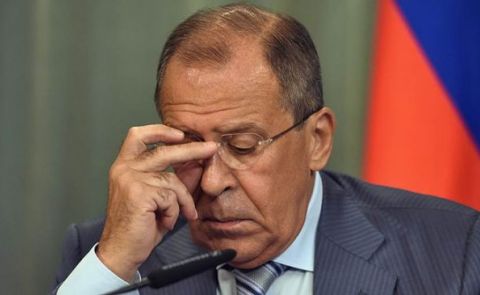
Pashinyan presents new chief of General Staff; opposition to continue protests in Armenia despite the announcement of snap elections
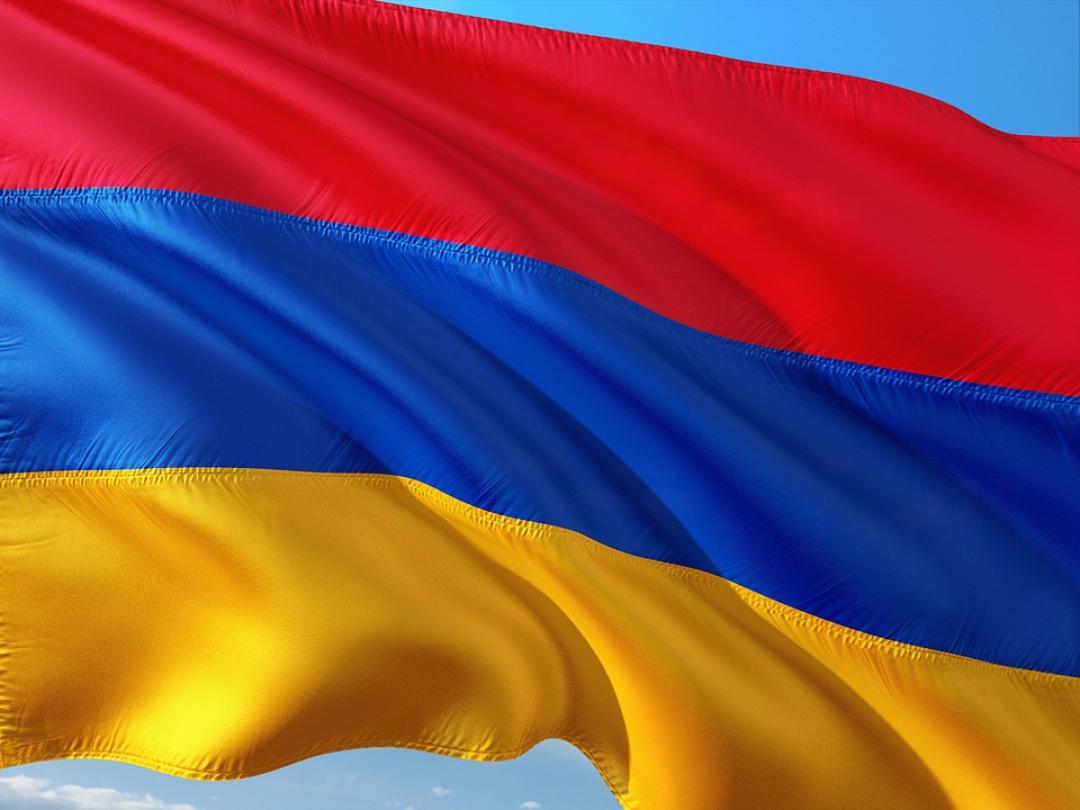
On 22 March, Armenia’s Prime Minister Nikol Pashinyan visited the country’s Ministry of Defence and presented newly appointed Chief of the General Staff Artak Davtyan to the general officer staff of the armed forces.
Pashinyan stressed that Davtyan was removed from the same post for reasons unrelated to service. The PM added that during this period they were in continuous contact and that it was clear that his abilities must be used in state affairs. He said that during the war he invited Davtyan, who at that time was president of the Military-Industrial Committee to organise Syunik’s self-defence or participate in it.
“I am convinced that he will continue his mission on the same high level as he started it. Indeed, the mission is not an easy one, we are living hard times and the issues are [incredibly] serious. Number one issue – defend the army, defend the armed forces and issue two – ensure necessary reforms in the armed forces which first of all will strengthen the armed forces, level of defence of Armenia’s foreign security and of course, the trust of all of us in the armed forces and our security system,” Pashinyan added. He also stressed that the developments that took place from February have not left any personal or political trace but asked to sacredly preserve the depoliticization of the armed forces.
Davtyan said that the Armenian Armed Forces fulfilled and will continue fulfilling the tasks to neutralise the external threats. He also commented on the incident when the army demanded Pashinyan’s resignation (Caucasus Watch reported). “After the well-known statement of the leadership of the general staff the situation was resolved, and the existing disputes moved to the legal field. The Armenian Armed Forces, having constitutional status of being under supervision of the government and civilian control, will keep neutrality in political affairs [and will be] exclusively… guided [by] its sole commitment to ensure the defence, security, territorial integrity and inviolability of borders of the Republic of Armenia,” Davtyan underscored.
While speaking to the press, Armenia’s Justice Minister Rustam Badasyan declined to comment if Pashinyan would resign to pave the way for snap parliamentary elections. "The prime minister will submit his resignation within the timeframe provided by law. There is no exact date yet, but you can count yourself - you need to count back from 20 June, no earlier than 35 and no later than 50 days before the election date," Badasyan said. When asked who the ruling majority will nominate as its candidate for the post of prime minister Badasyan noted that the answer is obvious and that Pashinyan would be the candidate.
Pashinyan also held a number of meetings and public rallies in different rural communities as part of his trip to Armenia’s western Aragatsotn province following his announcement on holding snap elections. He raised a number of issues that observers say may become part of the future campaign, including his vision of the country’s relations with the neighbours in the region after last year’s war in Nagorno-Karabakh. In his public remarks Pashinyan also slammed his political opponents, including former presidents Levon Ter-Petrosyan and Serzh Sargsyan.
“No matter what they say, the topic of opening communications is mutually beneficial. If someone says that the opening of these roads is beneficial only for Azerbaijan, do not believe it. If someone says that the opening of communications is beneficial only for Armenia, again do not believe it. The opening of communications, especially in this situation is beneficial both for Armenia and Azerbaijan,” stated Pashinyan.
Referring to the situation in the region, Pashinyan said the biggest problem is that Armenia is being perceived like the enemy and it perceives others as enemies. “As long as we are being perceived as an enemy, the longer we perceive them as an enemy. The more we perceive them as enemy, the more we are being perceived as enemy. And it is very difficult to find the starting point from where this process launched,” he said. “If my people decide to shoot me, I will stand humbly under the wall. Let no one think that I will run away from the decision of the people,” Pashinyan emphasised.
In regard to the country’s two former presidents, Pashinyan accused Sargsyan of being driven to the negotiations with Azerbaijan on the status of Nagorno-Karabakh to a state where seven districts around the disputed region would be handed over to Baku in exchange for only the restoration of the former autonomous oblast. When speaking on Ter-Petrosyan, during his career he twice showed good examples of escape.
Sargsyan responded to Pashinyan’s statements by calling Pashinyan’s account of the Nagorno-Karabakh peace process that puts the blame for its failure on the previous government as an outright lie. “Thousands of people have been killed due to your mediocrity or by your malicious intent. You [Pashinyan] resignedly endure the enemy’s encroachments on Armenia, flirt with the enemy who tortures our fellow citizens in Baku prisons, and destroys our cultural values in Karabakh. Nobody believes you anymore, because you lied throughout the war, after it and continue to lie to this day,” Sargsyan replied. He further stressed that because of Pashinyan’s “starting negotiations from his own point” and his “populist manner of action” “all provisions on the right of Nagorno-Karabakh’s people to self-determination were pushed out of the negotiations.”
Representatives of other opposition forces in the country also condemned Pashinyan’s rallies, perceiving them as an early start of an election campaign on Pashinyan’s behalf. “I do not pay taxes for Pashinyan to gather hundreds of police officers around him or deploy thousands of police officers to close a town. He is using the administrative lever and is doing something that he is not supposed to be doing,” said Artur Khachatryan from the Armenian Revolutionary Federation (Dashnaktsutyun). “I definitely agree with the assessments that Pashinyan uses administrative resources and is campaigning, but, frankly, I am surprised that human rights activists, politicians, political analysts, and the media continue to be surprised by this. He will go to any length to retain his power,” said Naira Zohrabyan from the Prosperous Armenia opposition party.
In the meantime, the opposition National Salvation Movement stated that they would continue their street protests despite the announcement of early parliamentary elections in June. The movement’s coordinator Ishkhan Saghatelyan said that the movement had “sufficient reasons” to doubt that Pashinyan genuinely intends to resign and hold elections on 20 June. He also emphasised that the movement may introduce some “tactical changes” in its struggle but will stick to its main agenda, that Pashinyan must resign, and a provisional government should be formed before preterm elections would be held.
“We find that snap parliamentary elections are a necessary condition for getting out of the current situation, but if Pashinyan continues to act as prime minister during the election period, there is a great risk that the elections will not be competitive and that there will be no equal conditions [for participants]. And there is a great chance that such elections will be rigged. In that case, instead of becoming a way out of the current crisis, these elections may trigger a new crisis,” Saghatelyan added.
See Also

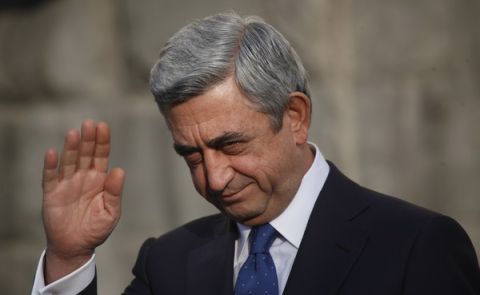
Serzh Sargsyan Rejects Charges, Backs Impeachment, and Warns of Secret Deals
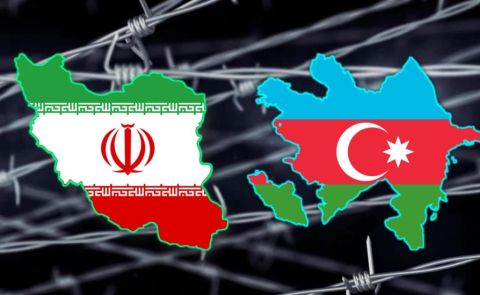
Azerbaijan Confirms Execution of Terrorist Behind Embassy Attack in Iran
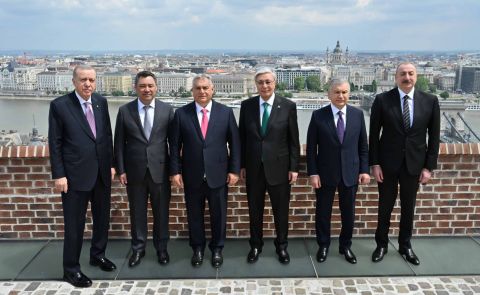
Turkic Leaders Adopt Budapest Declaration, Emphasizing Peace, Trade, and Digital Connectivity
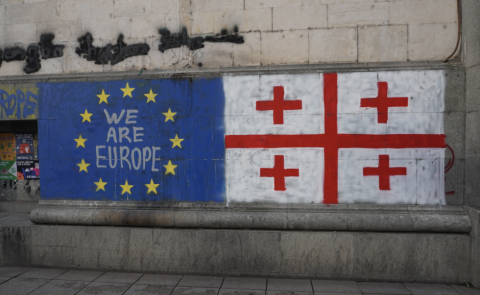
International Officials Criticize Georgian Dream Amid Democratic Concerns

